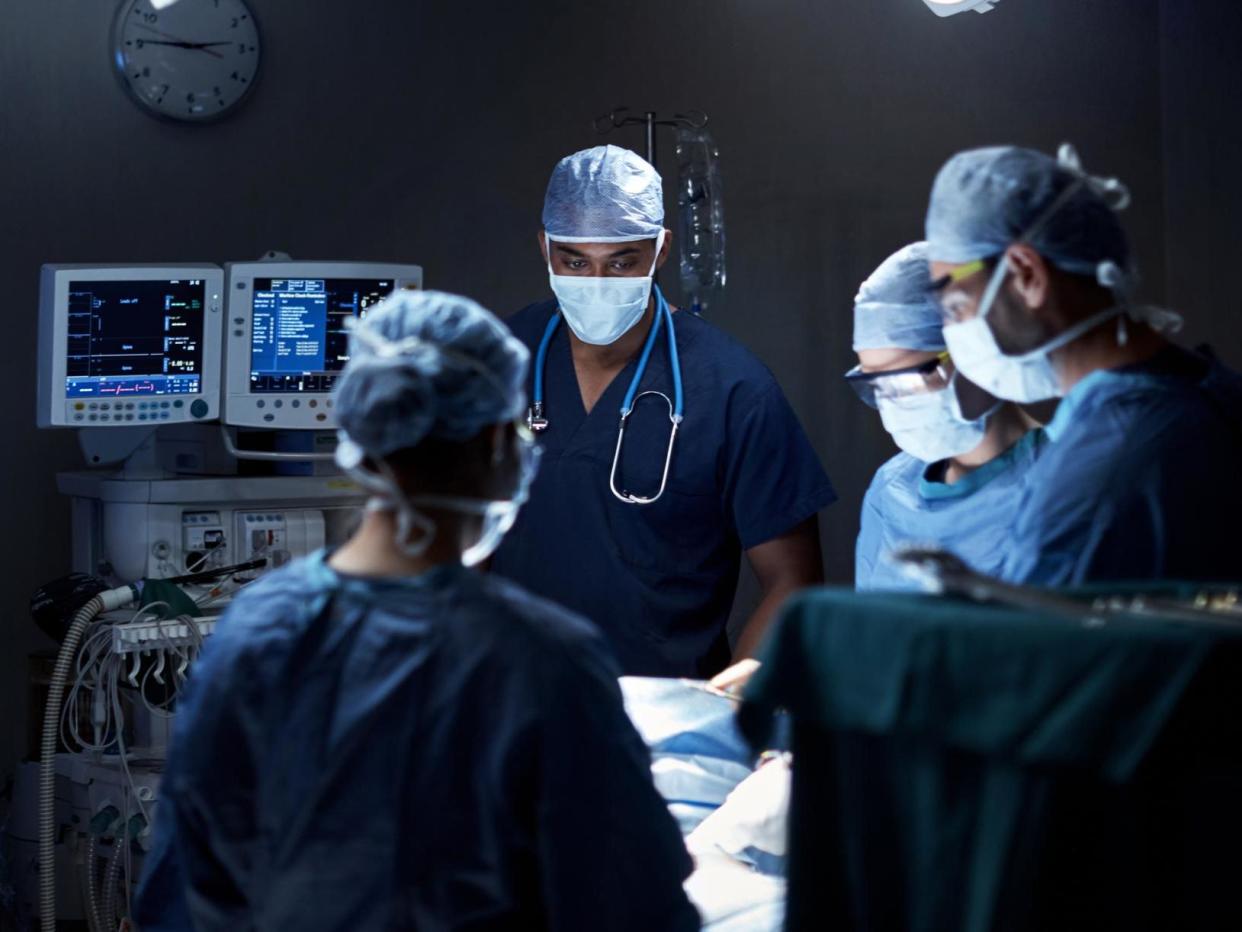Dozens of doctors issue ‘grave’ safety warning over plans to reform NHS cancer services

Dozens of doctors from across Greater Manchester have warned health bosses plans to reform cancer services in the city will put patients at risk and destabilise smaller hospitals.
In a letter, seen by The Independent, to the head of the devolved NHS and social care system for the city, almost 40 urological consultants called on the NHS to abandon its plans.
NHS leaders are aiming to centralise hundreds of bladder and kidney cancer operations a year at the University Hospital of South Manchester but the doctors warn this will make their roles in smaller district general hospitals harder to recruit to and leave patients who need input from urologists at a disadvantage.
Ultimately they fear the reorganisation could put services at smaller hospitals such as emergency care, gynaecology, trauma and obstetrics at risk because of the role urologist play in their delivery.
The NHS wants to centralise some operations because evidence suggests the more surgeries doctors perform the better they become and the better the outcomes for their patients.
The 39 urologists say they support some centralisation of services but to two or three sites rather than one and they argue the 620 kidney operations performed in Manchester each year are already safe with a low mortality rate.
In the letter, sent to Jon Rouse, chief officer of Greater Manchester Health and Social Care Partnership, the consultants said: “As representatives of most of Greater Manchester’s urological services, we have grave concerns that if implemented in its present form, this plan will…inevitably damage patient care.
“The proposed model has significant and inherent flaws and risks”, they argued, pointing to the workforce shortages in urology that would mean not enough urologists for hospitals covering the rest of Manchester.
The letter added: “The inevitable consequences of centralisation of complex urological cancer services on a single site will result in an inability to provide a safe sustainable comprehensive service to large areas of the city, particularly those areas which are already under resourced with regard to access to care and which have the highest levels of social deprivation.
“In our collective view, the proposed plan to re-locate complex renal and bladder cancer surgery to a single site is unworkable and has arisen because of the blinkered commitment to a flawed urology cancer plan, which has not satisfactorily made the case for change or addressed the potential benefits and the risks to the service.”
Lead signatory to the letter Kieran O’Flynn, consultant urological surgeon at Salford Royal Foundation Trust, told The Independent: “The key concern is that it will make various hospitals and the ability to provide urological services untenable. The reason for that is we already have a shortage of clinicians and hospitals struggle to recruit to their units and if services become centralised, the jobs will become less attractive and ultimately mean a poorer service for patients.”
He explained that urologists were often called on to care for patients in general surgery and specialties such as gynaecology and emergency care at district hospitals and with only 54 urologists for the Manchester conurbation of 3.2m people, there was not enough staff for a centralised centre and local hospitals.
“Moving everything centrally will make these jobs harder to fill and ultimately provide a poorer service for patients. I am convinced that NHS England has absolutely no understanding of the massively disruptive effect this may have on urology services nationally. For greater Manchester, my view and that of many of my colleagues is that it would be disastrous,” he said.
A spokesman for Greater Manchester Health and Social Care Partnership said: “Proposals to reorganise urology cancer services were agreed in 2017 following extensive engagement with clinicians and patients.
“We are confident that the revised service model will meet national standards and improve outcomes with patients receiving a consistently high standard of care at whichever hospital they are treated.
“The detail of the way those changes are to be implemented, including how they work with the proposed remodelling of benign urology services, is complex and is currently being worked through with clinicians, hospital trusts and commissioners.
“In this context, we understand the concerns raised by Dr O’Flynn and his colleagues, we welcome their input and we are meeting them later this month to continue our discussion.”
Read more
Women over 45 'less likely to attend cervical screening'
Breast cancer survivor criticises ‘fluffy’ pink charity ribbons
Smear tests for cervical cancer could be replaced by home sample kit

 Yahoo News
Yahoo News 
